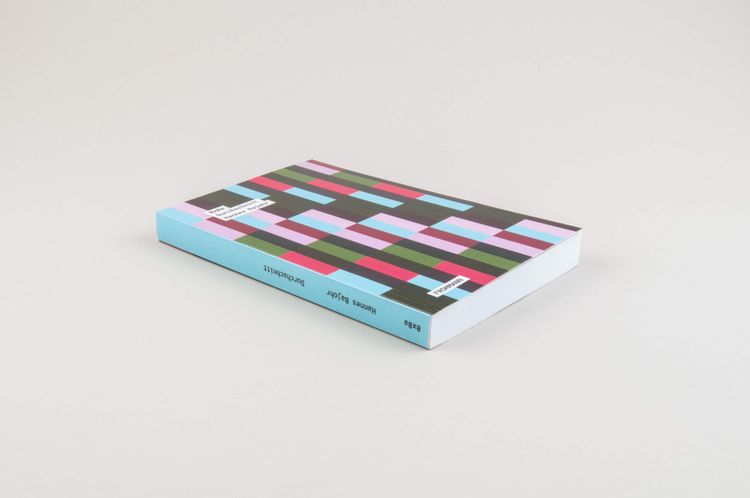Hannes Bajohr’s Durchschnitt. Roman (Average: Novel) can be seen as a contemporary response to the canon debate. It radicalizes the idea of a portable national library, which the famous German literary critic Marcel Reich-Ranicki had realized in 2002 with Der Kanon. Die deutsche Literatur in fünf Schubern (The Canon of German Literature in five Boxed Sets), sorted by genre. To address the problem of the “great unread,” Hannes Bajohr condenses the box with the twenty “best” German novels into a single paperback by applying various methods of data analysis to the corpus: he wrote a Python script to determine the average length of the sentences (eighteen words), deleted all sentences with deviating lengths, sorted the output by alphabet, and declared it a novel in the subtitle. The outcome of this kind of “distant reading,” with the help of which one hopes to learn essentials about texts without having to actually read them, is “the average” of “the best,” i.e., a deconstruction of a canon as well as its analytic decomposition.
Reich-Ranicki’s box with the twenty best German novels includes: Johann Wolfgang von Goethe, Die Leiden des jungen Werthers and Die Wahlverwandtschaften; E.T.A. Hoffmann, Die Elixiere des Teufels; Gottfried Keller, Der grüne Heinrich; Theodor Fontane, Frau Jenny Treibel and Effi Briest; Thomas Mann, Buddenbrooks and Der Zauberberg; Heinrich Mann, Professor Unrat; Hermann Hesse, Unterm Rad; Robert Musil, Die Verwirrungen des Zöglings Törleß; Franz Kafka, Der Prozeß; Alfred Döblin, Berlin Alexanderplatz; Joseph Roth, Radetzkymarsch; Anna Seghers, Das siebte Kreuz; Heimito von Doderer, Die Strudlhofstiege; Wolfgang Koeppen, Tauben im Gras; Günter Grass, Die Blechtrommel; Max Frisch, Montauk; Thomas Bernhard, Holzfällen.
The cover design is computer generated like all books by 0x0a, the writer’s collective for digital literature consisting of Hannes Bajohr and Greogor Weichbrodt. It is completely determined by certain variables taken from the text itself: “Thus, every text that is published on 0x0a.li gets its own cover, ‘written’ by its title itself” (0x0a, website).
Initially published on Lulu, the book was re-released by Frohmann Verlag, Berlin in 2016.
